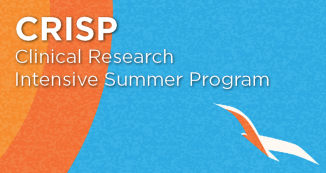
19 May ITHS COVID-19 Research Awardees Announcement
As the global COVID-19 health crisis progressed, and the need for research resources became evident, the ITHS COVID-19 Research Review Working Group promptly created a funding structure to provide much needed resources. On March 30th, ITHS launched the COVID-19 Research Awards program, designed to provide funding and resources to investigators working on COVID-19.
Investigators were eligible to receive up to $2,500 toward the purchase of supplies or core in-kind services provided by ITHS. The period of the award is 6 months, ending November 30, 2020. Applicants were required to demonstrate the impact this award would have on their research.
We are pleased to announce the six exceptional research projects selected to receive the award.
AWARDS TO PRINCIPAL INVESTIGATORS
Mark Wener, MD – University of Washington
Dr. Wener was awarded $2,500 to establish dried blood spot (DBS) serology tests to identify individuals in our community at risk for COVID-19. This project seeks to modify existing commercially available ELISA tests to optimize results obtained from the DBS matrix, and to demonstrate high sensitivity and specificity of the DBS matrix. The long-term goal of this project is to establish DBS-based serology tests to directly aid clinicians and epidemiologists identifying individuals at risk for COVID-19 and estimate the prevalence of SARS-CoV-2 in our community.
Sharma Rashmi, MD, MS – University of Washington
There is limited data evaluating clinical outcomes for minority patients infected with COVID-19 within the UW Medicine health system. Dr. Rashmi was awarded $2,500 to use ITHS resources to assist with coordinating research data from the Enterprise Data Warehouse to evaluate the association between sociodemographic characteristics and clinical outcomes for patients hospitalized at UW Medicine with COVID-19 infection.
Stephen Smith, PhD – Seattle Children’s Hospital
Dr. Smith was awarded $2,500 to develop two clinically-relevant tests based on Immunoprecipitation-Flow Cytometry (IP-FCM). The tests include an assay to quantify the levels of anti-COVID-19 IgG or IgM in clinical samples and an assay to quantify binding between COVID-19 spike protein and its endogenous receptor, ACE2, in vitro. Dr. Smith will use the funds to purchase antibodies and flow cytometry beads.
Catherine Butler, BA, MD – University of Washington
Dr. Butler was awarded $2,500 to purchase a qualitative analysis software license, recruitment materials, ITHS in-house support, and participant incentives. Her proposal seeks to examine the experience of patients with advanced kidney disease, their families, and the clinicians who care for these patients during the COVID-19 pandemic.
Bronwyn Gunn, PhD – Washington State University
The use of plasma from recovered COVID-19 patients in treatment of acute infection is currently being explored as a potential therapeutic clinical strategy, and the likely availability of convalescent patients in nearly every county in the United States may provide a local and readily available therapeutic for acute infection. Dr. Gunn was awarded $2,500 to purchase flow cytometry antibodies to support the potential therapeutic use of COVID-19 convalescent plasma by analyzing virus-specific antibodies for the ability to induce Fab- and Fc-mediated effector functions in innate immune cells.
Namrata Singh, MD, MSCI – University of Washington
Dr. Singh was awarded $2,500 in biostatistical support to leverage data on the use of hydroxychloroquine (HCQ) among patients with rheumatoid arthritis and systemic lupus erythematosus, and evaluate whether use of HCQ as maintenance therapy is associated with (1) protection against developing COVID-19 infection and (2) improved outcomes among patients with confirmed infection compared to those not on this drug.
ITHS would like to formally congratulate these awardees and thank them for their commitment to this research. We are proud to support scientists in their tireless efforts to find resolution to this unprecedented pandemic.







